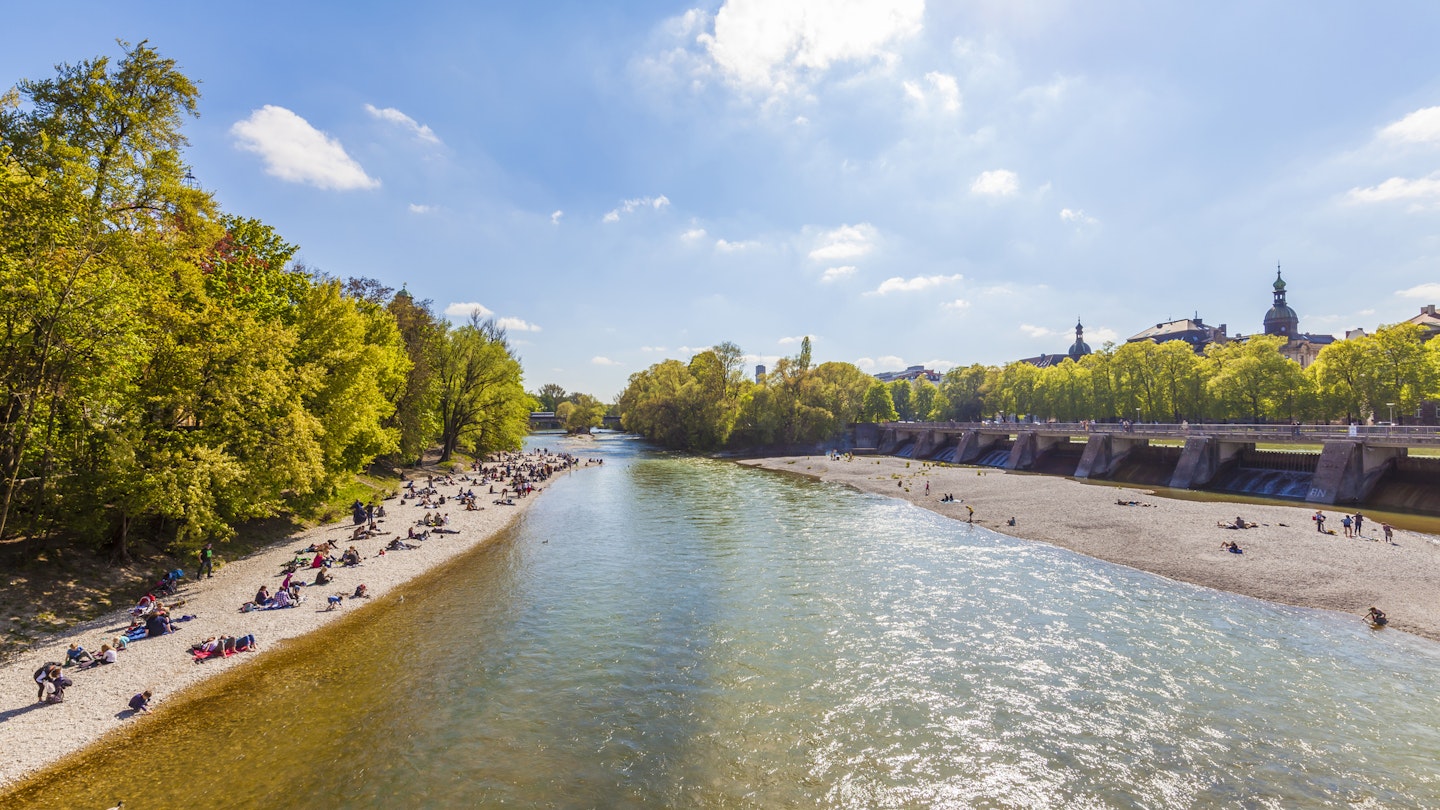When to Visit Munich: A Seasonal Guide
With snowy winters, hot summers, and plenty of indoor and outdoor activities suitable for every season, Munich offers a diverse range of experiences to appeal to visitors year-round.
Whether you’re looking to join the bustling crowds at the city’s famous beer festival, explore the enchanting Christmas markets, or discover the best sunny day activities, this guide is designed to help you choose the right time to visit the Bavarian capital.

July to August: The Best Time for Budget Travelers
High summer can mean high temperatures in Munich, but the city’s ample outdoor offerings help mitigate the heat. The clear waters of the Isar River provide the perfect opportunity for a refreshing swim, with deck chairs, umbrellas, and barbecues enhancing the beach-like vibe. The city’s lush parks and leafy beer gardens offer ample shade and refreshment.
Even during the peak tourist season, visitors often find that free outdoor activities keep costs down, making it ideal for budget travelers. Many beer gardens even allow you to bring a picnic, provided you purchase a drink.
August can feel particularly tranquil as families vacation during the Bavarian school holidays. Nevertheless, Munich remains lively, with open-air concerts, outdoor cinemas, and street festivals creating a vibrant summer atmosphere. It’s wise to pack summer attire and sunscreen while also considering a light waterproof jacket for sudden rain showers.

March to June: Great for Outdoor Festivals
The transitional seasons of March to June and September to October feature comfortable climates, making it a perfect time to explore Munich by bike. Spring heralds the opening of beer gardens and the strong-beer season (Starkbierzeit), where local breweries celebrate with festive gatherings.
In April, folk festivals introduce carousels, roasted almonds, and beer tents, with many attendees donning traditional Bavarian attire. As June arrives, expect busy ice cream parlors and full beer gardens, alongside the annual Munich film festival that attracts cinephiles from around the globe.

September and October: Oktoberfest Fever
Fall marks Munich’s famous Oktoberfest, a revered beer festival that attracts millions, resulting in increased hotel rates and the need for early bookings. Although often mistakenly associated solely with October, the festival actually begins in September. The festivities transform Theresienwiese into a bustling hub of excitement that spills into the streets and beyond.
If your plans include experiencing Oktoberfest, it’s crucial to organize your trip well in advance. If you prefer quieter times, it may be best to steer clear of Munich during this period.

November to February: Embrace Christmas Markets, Museums, and Winter Activities
As cold and dark days approach, the arrival of Christmas markets in late November brings a festive atmosphere to Munich. These markets, featuring mulled wine and sparkling holiday lights, create a magical experience that transforms the chilly environment into a winter wonderland. December sees both tourists and locals flock to infamous Christmas markets, with options ranging from traditional stalls to those organized by the local LGBTIQ+ community.
Following the holiday season, January and February can feel somewhat gloomy. Many residents escape to the mountains in search of snow, though several ski slopes are accessible by train. In the city, Munich’s numerous cafes, museums, and galleries provide warm and stimulating retreats. If the weather allows, some locals may indulge in outdoor activities like ice skating or Bavarian curling on the frozen Nymphenburg Canal. Additionally, February brings Fasching (Carnival), a vibrant celebration where costumes and festivities enliven the streets.
This article was first published on January 5, 2022, and updated on April 30, 2024.




